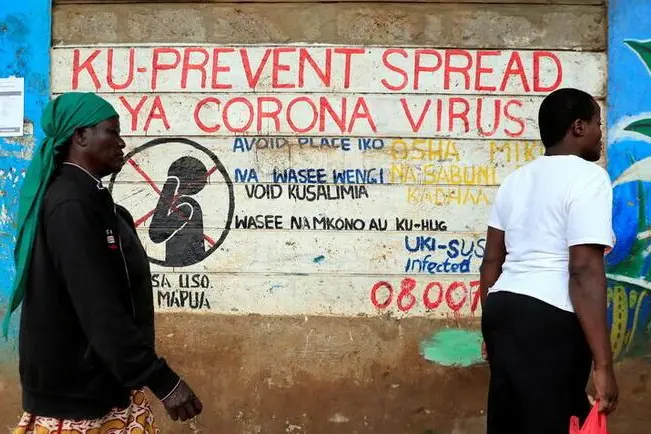PHOTO
NAIROBI - A Kenyan government programme intended to help the capital's poorest citizens weather the pandemic was crippled by irregularities including cronyism and benefited just a fraction of those in need, Human Rights Watch (HRW) said on Tuesday.
President Uhuru Kenyatta announced the 10 billion-shilling ($92.51 million) cash transfer programme in May 2020, two months after the East African nation entered a strict lockdown.
A report by the U.S.-based rights group found that officials in charge of enrolment frequently ignored eligibility criteria "and directed benefits to their relatives or friends, even in cases where they did not meet the criteria".
In other cases, the report found, the funds were only partially disbursed to those who were enrolled.
Nelson Marwa, Principal Secretary for Social Protection at the Ministry of Labour and Social Protection, denied the report's findings.
"It's propaganda. That money was managed by a multi-agency team and disbursed by Safaricom. They have all the records," he told Reuters.
The report did not accuse Safaricom, Kenya's largest mobile operator, of any wrongdoing.
Kenya has recorded 192,758 infections and 3,775 coronavirus-related deaths since the pandemic began. Its economy contracted 0.1% last year, the International Monetary Fund has said.
HRW said the programme, which ended in December, helped only a small fraction of those in the capital Nairobi, who faced hunger and eviction after losing their income due to the lockdown.
By October last year, of 600,000 households living in Nairobi's eight informal settlements, just 29,000 - less than 5% - were enrolled in the cash transfer programme, the report said, citing a Kenyan government official.
($1 = 108.1000 Kenyan shillings)
(Reporting by George Obulutsa Editing by Maggie Fick and Joe Bavier) ((george.obulutsa@thomsonreuters.com; Tel: +254 20 499 1234; Reuters Messaging: george.obulutsa.thomsonreuters.com@reuters.net))





















